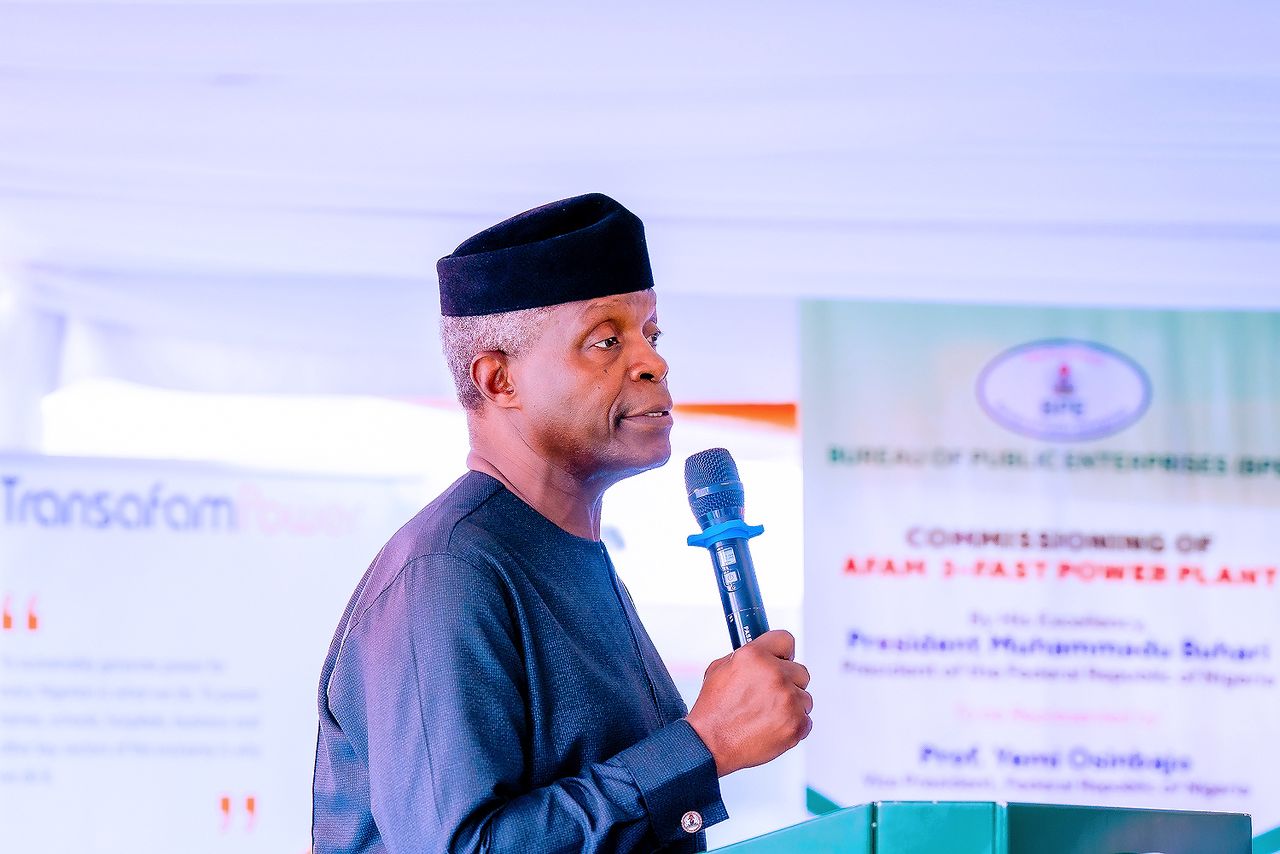Nigeria, African countries deserve more debt forgiveness – Osinbajo
Former Vice-President, Prof. Yemi Osinbajo, has stated that the cost of borrowing for African countries is too high, saying this has plunged many African countries including Nigeria into a huge debt burden requiring huge sums of money to service. He, however, sought further debt forgiveness for Africa to concentrate on funding climate friendly investment that […]

Former Vice-President, Prof. Yemi Osinbajo, has stated that the cost of borrowing for African countries is too high, saying this has plunged many African countries including Nigeria into a huge debt burden requiring huge sums of money to service.
He, however, sought further debt forgiveness for Africa to concentrate on funding climate friendly investment that would contribute to boosting a green economy in the continent and across the world.
Osinbajo spoke while delivering the 23rd Chief S.L Edu Memorial Lecture organised by the Nigerian Conservation Foundation (NCF).
The former Vice-President spoke on the topic, “Greening Africa’s Economies: Can Climate Positive Growth Deliver Prosperity?”
He stated that Africa’s huge debt burden poses a serious threat to the continent’s strategic position in championing sustainable, climate friendly actions.
Daily Trust reports that Africa has $824bn debt burden as of last year according to the African Development Bank (AfDB).
The bank also recently revealed that Nigeria and other countries on the continent will require an average of $10 billion annually for debt refinancing starting from 2025 to 2033 while the debt servicing obligations are set to hit $74 billion in 2024.
Osinbajo however stated that most African countries are hugely indebted to the developed countries because of the high cost of borrowing, saying there was nothing wrong in borrowing.
“The only way by which countries grow is by borrowing and implementing projects that would support such borrowing,” he said.
With the rising debt profile and the imperative of championing a sustainable climate resilient industrial revolution, the former Vice-President said there was the need to ask for further debt relief from the developed countries and the global financial institutions.
He said, “There must be a reform of the global financial system. Many of us have heard about the Bridgetown Initiative and the Capital Adequacy Framework, which proposes to strengthen multilateral development banks so that they can lend more to emerging economies.
“There are technical solutions like recycling special growing rights, blended financing, and risk mitigation strategies that can also help to reduce borrowing costs.
“But these are, of course, technical, financial sorts of matters, but they are crucial if we are to reform the global financial system. That is reducing the debt burden on African nations, and this has become so important.
“Most African nations are burdened with debt, and that follows from some of what I’ve said earlier. In other words, the cost of borrowing is so high anyway, that the cost of servicing those debts naturally is very high, which is why many African countries are severely indebted and spend too much today on debt repayments, leaving very little room for climate investments.”
For the world to achieve the zero carbon emission target by 2050, Osinbajo, a Professor of Law and Senior Advocate of Nigeria, stated that the world needs Africa to develop without increasing carbon emissions.
According to him, Africa also has the potential to lead the world’s first truly industrial revolution by building and running climate friendly industries which would help in reducing Africa’s trade deficit with the rest of the world.
He stated that a good starting point is processing its raw materials, adding that by 2050 nearly 40 per cent of new city dwellers would be in African cities.
The former Vice-President stated that Africa can also tap on its renewable energy potentials to produce hydrogen and reduce emission by as much as 95 per cent.
“Africa can actually lower emissions by over 110 million tons of CO2 annually and generate about $25 trillion in additional revenue, creating about 24,000 direct jobs and another 215,000 indirect jobs in related industries,” he said.
He stated that African countries must also be concerned in tackling energy poverty which worsens the poverty level in the continent, pointing out that over 600m people in Africa lack access to electricity.
Osinbajo noted that this can be addressed as Africa remains a global powerhouse of renewable energy.
“And by pursuing an industrialisational pathway using renewable energy of which we have 60% of the world’s potential, we can actually develop the first green industrial civilization,” he added.
The former Vice-President however advised African leaders to speak with one voice to influence global policies while calling for “stronger and deeper capital markets and African financial institutions” to promote investment in renewable energy and climate friendly investments.
He described the late Shafi Lawal Edu who founded NCF as “undisputed icon of global environmental conservation,” saying his legacy “reminds us that the decision we make now will determine the future of our planet.”
Chairman, National Executive Council of NCF, Justice RIB Adebiyi, said the lecture was instituted 23 years ago to continue to preserve the legacies of the SL Edu, the founder of the foundation.
She said through the annual lecture series, NCF has brought to the fore the imperative of building a climate resilient community in Nigeria and the African continent.
